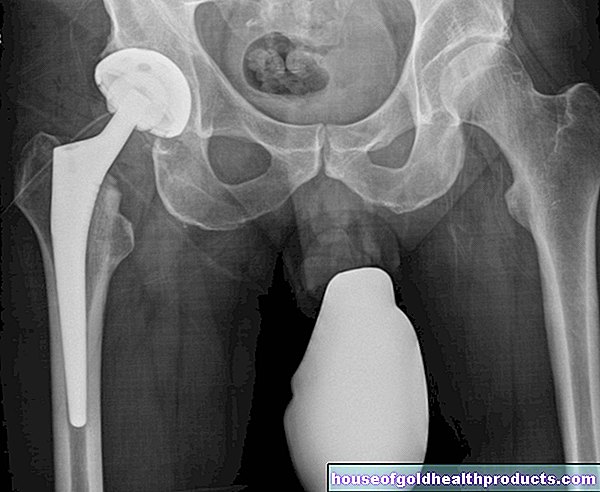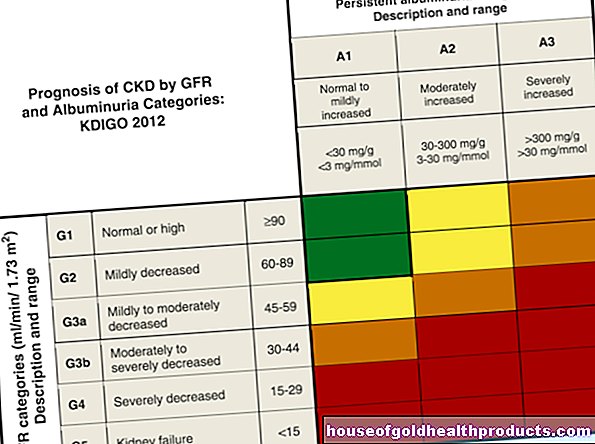Weighing every day will help you lose weight
All content is checked by medical journalists.MunichWeighing daily or not? Opinions are divided on this question. A new study provides convincing arguments for the daily weighing procedure. But it mainly helps men.
Stepping on the scales every day - there are a few arguments against this. For example, the pointer can move to the right from time to time, even though you have strictly adhered to your diet plan. There are many reasons for this: when body fat has been converted into heavier muscle mass through exercise, for example. Or due to water retention due to hormonal fluctuations. When something like this happens, frustration is inevitable. Some then throw in the towel. Some diet experts therefore recommend weighing yourself at longer intervals.
The scales as a diet aid
But a new study holds against it. It proves that losing weight not only works better, but is also more sustainable if you step on the scales every day - and then also document the determined weight. "The method clarifies the connection between eating behavior and weight," says study director David Levitsky from Cornell University in New York State.
162 overweight men and women took part in the study - around half of them acted as control groups. They were given the option to initially lose weight for a year without further guidance.
Lose weight step by step
The subjects in the actual test group were initially given the specific task of reducing their weight by one percent. The focus was on slowly but steadily losing weight. How they succeeded was up to them - through smaller portions, avoiding nibbles or skipping meals. If they had lost a corresponding amount of weight, and this remained stable for at least ten days, the next stage of a further percent weight loss followed - and so on. The goal was to lose around ten percent body weight within a year.
Another important component of the diet was to record the weight on a daily basis. For this purpose, a special website was made available to the participants, on which they could enter their weight and follow the progress of their weight curve.
The measures paid off: after one year, almost one in three people in the diet group had lost five percent of their body weight, and 8.6 percent had even slimmed down the targeted ten percent. In the control group, it was only one in ten who cracked the five percent mark, or only 4.6 percent who lost their weight by ten percent.
Men in particular benefit
However, the men benefited significantly more from the strategy than the women. These also decreased, but no more than the participants in the control group. The help of daily weighing and the downward-pointing weight curve also proved to be more sustainable for men in the long term: They were better able to maintain their weight after the year of losing weight. "We believe that weighing helps people make diet choices that will benefit their weight," says study leader Levitsky. Scientists have yet to say why this works better for men than for women. (cf)
Source:
Carly R. Pacanowski, David A. Levitsky. Frequent Self-Weighing and Visual Feedback for Weight Loss in Overweight Adults. Journal of Obesity, 2015; 2015: 1 DOI: 10.1155 / 2015/763680
Tags: skin care elderly care teenager






























